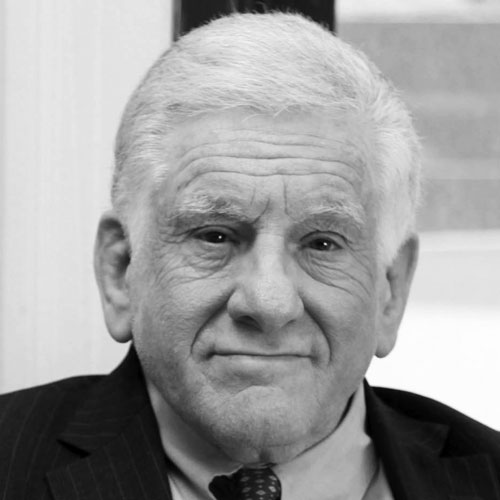Not every lawyer can say his or her average day could begin with coffee and contract negotiations and end with an all-nighter spent handling the legal aftermath of a cruise ship incident. But that’s all in a day’s work for Dan Farkas, senior vice president, general counsel, and assistant secretary for Norwegian Cruise Line Holdings.
Diving into maritime law was never the original plan for Farkas. Instead, litigation was his first love, as he dreamed of working as a prosecutor through the long hard days of law school—a vision that stemmed from childhood inspiration from his grandfather, a worker’s compensation lawyer in Brooklyn.
“I always had tremendous respect for him; the way he carried himself and his stature,” Farkas says. “I wasn’t sure how, but I knew I wanted to be like him. I knew I wanted to be a lawyer.”
The dynamic, fast-talking New York native felt like he could “spend all day and night in court,” so for the first three years out of law school he worked as an assistant state attorney for the eleventh judicial circuit in Miami-Dade county, Florida—the first few months of which included tutelage from Janet Reno before she left to become attorney general under Bill Clinton. Farkas says working for her was a dream come true, because of her high standards and integrity.
But burdened with student loans to pay off, Farkas decided to jump ship after his contract was up, subsequently shifting into a partner role at a maritime law firm in Miami, representing major cruise lines like Carnival, Royal, Princess, and Norwegian. After a boiler room incident on one of the Norwegian Cruise Line ships in 2003, Farkas played an ongoing role in the legal processes that followed, which earned him a permanent spot on the in-house counsel team at the company.
“I wasn’t sure what to expect at the time,” he says. “But it was so exciting and unexpected and interesting that I realized I wanted to pursue more of a legal business role instead of the litigation side.”
After working his way up the chain of command from assistant general counsel when he first joined Norwegian Cruise Line in 2004, Farkas has made waves at the company. He’s managed to nail down not one but two major career milestones—the first, when he helped guide the company through the process of going public, and the second when the company acquired Prestige Cruise Holdings, parent company of Oceania and Regent Seven Seas Cruises in 2014.
He didn’t get to ring a bell (it’s actually an electronic button at NASDAQ, he jokes), but when the company went public in January of 2013, Farkas says it was the “culmination of many years of hard work.” He played a large role in writing the company’s selling pitch during the days leading up to the moment, trying to find the perfect narrative to explain the history and value of the company for shareholders, and he derived great pride when the whole process was finalized. Acquisitions started at $19 per share in 2013, and as of January 2015, the disposition sold at $45.61, a healthy margin of growth.
The trajectory toward major growth was also the key regarding Farkas’s second major success at Norwegian, when the company merged with Prestige Cruise Holdings. The deal was made swiftly and not without its fair share of hurdles to overcome, including a last-minute news leak that forced final negotiations to go around the clock until the deadline. The team planned on announcing the merger on September 3, but the announcement was accelerated a day early, and Farkas says the teams likely didn’t solidify everything until about 7:59 that morning. “It was probably forty-eight hours without any sleep. That’s an adrenaline rush.”
Since the merger, Farkas has spent most of his time integrating the two companies to form a fluid partnership, a task that will require most of his focus in 2015. Blending the company cultures, systems, and legal departments takes a certain amount of finesse and precision, and he is more than up for the challenge.
Outside of these major milestones, Farkas’s day-to-day schedule is full of unexpected twists and turns as he oversees risk management, corporate governance, compliance, medical services, and government affairs for the three cruise brands. It’s the variety and the thrill of juggling multiple projects at once that keep him excited about the job. “Every day brings a new challenge, and I get excited to get to work because I never know what I’m going to find,” he says. “It might sound a little hokey, but it’s true. My day is never static.”
For example, mere weeks after the merger with Prestige was finalized in mid-November, after he had just begun to work on the integration process, an engine fire claimed the lives of several crew members on one of the newly acquired vessels, forcing Farkas to drop his other priorities and tackle the logistics of flying guests home from port, deal with PR issues, and help with the legal and regulatory investigations. Farkas believes that with this particular crisis situation, his role as in-house counsel and his past experience gave him the exact edge needed to get the job done quickly and effectively, because he had already spent so many months learning the ins and outs of how Prestige functioned.
This inside knowledge is key to the role of counsel in general, Farkas says. When asked about what his advice would be to corporations looking to bring their legal counsel in-house, he believes the best candidates are usually those who are already involved in the day-to-day business of the company. “There’s no one attorney, myself included, that knows everything about every item your company deals with,” he says. But familiarity is key. The right candidate for the job can hit the ground running on day one if they know and understand the company culture.
In addition to the thrill of juggling major crises, mergers, and other large projects, it’s the underlying daily need to solve problems that keeps him engaged and excited about his chosen path. But at the end of the day, success is measured in results. Farkas says he hopes that when he dies, his tombstone might read, “He got the deal done,” one of the major responsibilities any general counsel must hit to be successful. “A good general counsel is one who takes the law and finds a business solution that works. That’s what I try to do.”

